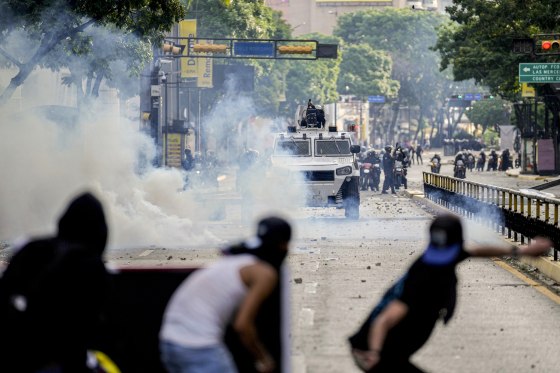Introduction
Recent revelations from a prominent human rights organization have thrown a spotlight on the dire human rights situation in Venezuela. The report, based on extensive investigations, has implicated Venezuelan security forces in a series of extrajudicial killings. This in-depth analysis explores the findings of the report, the responses from various stakeholders, and the broader implications for Venezuela and the international community.
Details of the Report
The human rights group’s report meticulously details instances of extrajudicial killings carried out by Venezuelan security forces, including police and military personnel. The investigation involved interviews with survivors, analysis of forensic evidence, and examination of witness testimonies. The report outlines several disturbing cases where individuals were allegedly executed without due process.
Extrajudicial Killings: The report provides a chilling account of how security forces have targeted individuals, often accusing them of being involved in criminal activities without any legal proceedings. Eyewitness accounts describe operations where suspects were killed in their homes or during arrests, raising serious questions about the legality and morality of these actions.
Evidence and Testimonies: The evidence presented includes photographic documentation, video recordings, and testimonies from victims' families. Forensic analysis has supported claims that many of the killings were carried out by trained personnel using military-grade weapons.
Patterns of Abuse: The report identifies patterns of abuse, suggesting that these killings are not isolated incidents but part of a broader, systemic issue within Venezuela’s security forces. This pattern indicates a troubling culture of impunity and a lack of accountability.
Government and Institutional Response
The Venezuelan government has vehemently denied the allegations, describing the report as politically motivated and biased. Officials argue that the report’s conclusions are based on selective evidence and lack context. However, the international community and human rights organizations have expressed concern over these dismissals.
Government Denials: Venezuelan authorities have labeled the findings as part of a campaign against the country. They argue that the security forces are acting within the bounds of law and are combating genuine threats to public safety.
International Reactions: International bodies, including the United Nations and various human rights organizations, have called for an independent investigation into the allegations. There is growing pressure for Venezuela to allow external scrutiny and to address the systemic issues highlighted in the report.
Calls for Accountability: Advocacy groups and international human rights organizations are demanding that Venezuelan authorities take immediate action to investigate the claims and hold those responsible accountable. There are also calls for reforms within the security forces to prevent future abuses.
Historical Context and Background
To understand the significance of the report, it’s essential to consider the historical context of human rights abuses in Venezuela. The country has faced numerous challenges related to governance, economic instability, and social unrest. These issues have often resulted in conflicts between the state and its citizens.
Previous Incidents: Venezuela has a history of human rights abuses, including reports of arbitrary detentions, torture, and extrajudicial killings. The government’s responses to these allegations have often been dismissive, contributing to a culture of impunity.
Current Political Climate: The current political climate in Venezuela is marked by intense polarization and conflict. The government, led by President Nicolás Maduro, has been accused of consolidating power and suppressing dissent. The security forces have played a role in maintaining control, sometimes through violent means.
Implications and Future Outlook
The findings of the report have significant implications for Venezuela and the broader international community. The exposure of these abuses could lead to increased international pressure on Venezuela, potentially resulting in sanctions or other measures aimed at addressing the human rights situation.
Impact on Venezuela: Internally, the report could exacerbate tensions between the government and opposition groups. It may also influence public perception and increase calls for reform within Venezuela. The government’s response to these allegations will be closely watched.
International Actions: The international community is likely to use the report as a basis for further action against Venezuela. This could include diplomatic pressure, sanctions, or calls for intervention by international bodies.
Human Rights Advocacy: The report underscores the ongoing need for robust human rights advocacy and monitoring in Venezuela. It highlights the importance of supporting local and international efforts to promote accountability and justice.
Conclusion
The recent report implicating Venezuelan security forces in extrajudicial killings represents a critical moment in the ongoing human rights crisis in Venezuela. The detailed evidence and testimonies provided in the report paint a grim picture of the abuse faced by Venezuelan citizens. As the situation unfolds, it will be crucial for the international community to continue monitoring developments and advocating for meaningful reforms and accountability.
